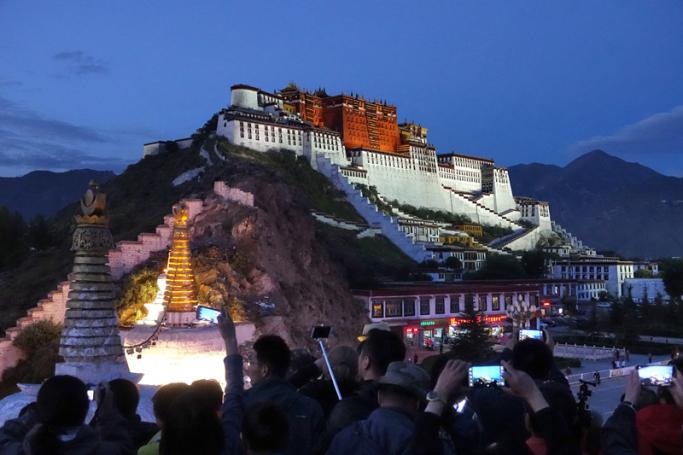For the past many decades, China is focussing on becoming a soft power in the 21st century in the field of international diplomacy, to attain international stature at low cost. As early as in 2007, former Chinese President Hu Jintao began to promote soft power concept saying that in the contemporary world, culture has became an important part of national power and it must be developed as part of soft power.
As a result, China’s soft power diplomacy was propagated through media, Confucius schools, cultural events etc.
Promotion of Chinese version of Buddhism is an important element of its soft power strategy. In Lumbini, it has been a well coordinated effort with the Chinese leadership fully involved. In 2019, even Chinese President Xi Jinping visited Nepal. As part of this endeavour, China is also providing lots of financial support for infrastructure development including airport, railways, hotels, guest houses, monasteries etc in Lumbini. Moreover, the project located at Lumbini is close to Indo- Nepal border has long term security implications for India.
Leaders of Centre and Tibet Autonomous Region (TAR), intelligence officers and Chinese Ambassador to Nepal besides monks from China visit Lumbini frequently in order to fulfil China’s long-term plan for establishing a religious platform in Nepal run by pro-Chinese Rimpoches/Lamas. This initiative is aimed at countering the importance of Bodhgaya (Gautam Buddha attained enlightenment), Sarnath (Gautam Buddha delivered his first teaching) , Rajgir (Gautam Buddha stayed for twelve years after attaining enlightenment) and Kushinagar (Gautam Buddha’s parinirvana) in India. As far back as 2011, China had advised through its Ambassador in Nepal Yang Houlan, to promote Lumbini as the birth place of Gautam Buddha and at the same time underplay the Indian connections of Gautam Buddha. However, with respect to Buddhism and its followers, primacy of India will always remain, as prince Siddhart attained enlightenment (Buddhahood) in Bodhgaya from where his journey for spreading Buddhism started in India and other countries.
China is two faced as on one hand, it is promoting Lumbini and influencing Buddhist organisation in South Asia however, on the other, it is undermining Tibetan Buddhism in Tibet and torturing Tibetans in Nepal. It’s a shame that it even influenced Nepalese government to refuse any celebrations of the Dalai Lama’s (the world’s most revered living Buddha) birthday in July. It has destroyed thousands of monasteries in Tibet in the name of Cultural Revolution and killed thousands of monks to control Tibetan Buddhism. It also forced innumerable monks to leave monkhood. Chinese authorities not only restricted the number of monks in every monastery in Tibet but they have also inducted Chinese Communist Party (CCP) cadres in the guise of monks and other functionaries in all the monasteries to keep control over Tibetan Buddhism. They also compelled monks to place photographs of CCP Chairman Mao Zedong and Chinese President Xi Jinping in their monasteries and bow in front of them. This is to promote patriotism and undermine the importance of the Dalai Lama and other Tibetan Rimpoches and deities.
In disguise of environmental clean-up drive, in June 2020 Chinese authorities ordered the removal of Tibetan prayer flags from the monasteries, villages and towns. However, Tibetan prayer flags are part of the Tibetan culture for centuries. Chinese authorities are also controlling the reincarnation of Tibetan lamas, which is an important part of Tibetan Buddhism.
While there is an all out war in destroying Buddhism in Tibet, China has gained considerable influence over international Buddhist organisations such as International Council for the day of Vesak (Thailand), World fellowship of Buddhist (Sri Lanka) and now is focussing its attention on Lumbini to make it a part of its overall narrative as well as undermine the importance of India in Buddhist affairs.
Lee Chen is a pseudonym for a writer who covers Asian affairs












